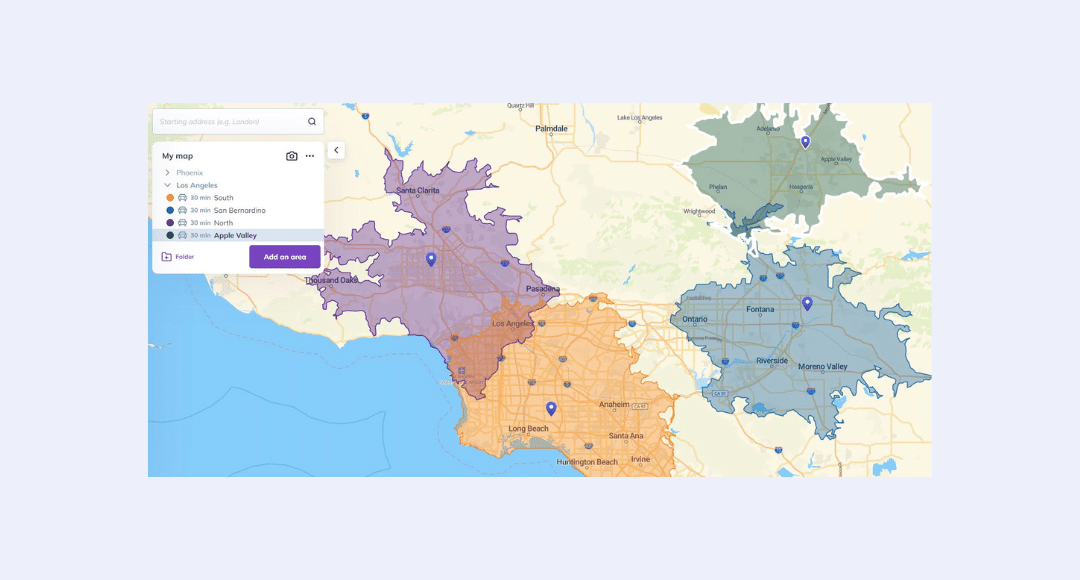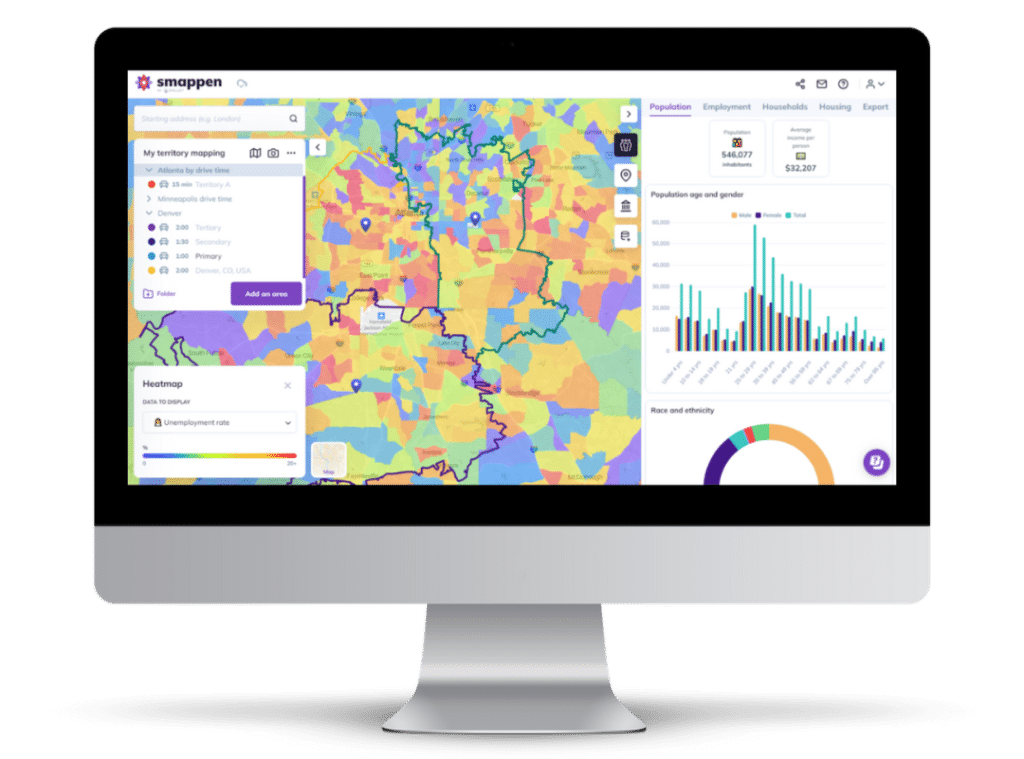Franchisors: your guide to successful franchising
You’ve been running a successful business for years now. The growth has been great, but maybe you’ve just hit a wall and it seems like you can’t quite scale the way you used to. You’ve been looking for new ways to expand, and you ran across the idea of being a franchisor. But how does that work, exactly?
Explore our articles and 101 guides to learn all about what is franchisor is, how you can become one, and how to launch and manage a successful franchise business.

Read our best articles on franchising

Franchisors: What They Are and How to Become One
Discover what a franchisor is, how you can become one, and some of the advantages that come with this path.
Scaling Franchise Success with Simplicity: Body Street’s Story
Body Street BodyStreet is a German fitness franchise specializing in
Franchisee Recruitment – How to Maintain Long-Term Relationships with Franchisees: Expert Advice for Franchisors
Practical steps and expert advice on how to maintain strong relationships with your franchisees, driving success for all!
Franchisee Recruitment – Convincing franchisee candidates : Territory’s best selling points
A well-defined and data-driven franchise territory can be a make-or-break factor in convincing franchisee candidates to join your network.
How Dogdrop Maps Smart Growth with Smappen
Dogdrop Dogdrop is a unique dog daycare company aiming to
Kids United: Smarter Territory Planning, Stronger Franchises
Kids United Kids United is an early development soccer program
Franchisee Recruitment – How to attract franchisee candidates in 3 steps
Let’s dive into these steps so you can start building the perfect franchisee who’ll help grow your business.
Start using smappen now
FAQs on Franchising
Who is called franchisor?
A franchisor is an individual or a company that owns the overarching brand, trademark, and business model of a franchise. The franchisor grants the rights to use these assets to franchisees, who operate their own businesses under the franchise brand. Essentially, the franchisor is the original creator and owner of the business concept, providing the framework within which franchisees operate.
What is the role of a franchisor?
The role of a franchisor encompasses several crucial responsibilities, including:
Developing the brand: The franchisor is responsible for creating and maintaining a strong brand identity. This includes everything from the logo and marketing materials to the overall customer experience.
Creating a business model: The franchisor develops a successful business model that can be replicated by franchisees. This includes detailed operational procedures, marketing strategies, and financial guidelines.
Training and support: Franchisors provide initial training to franchisees, ensuring they understand the business operations. Ongoing support, including marketing assistance, operational guidance, and technological support, is also provided to help franchisees succeed.
Quality control: To maintain brand consistency, franchisors implement quality control measures. This includes regular evaluations and audits to ensure franchisees adhere to the established standards.
Marketing and advertising: Franchisors often manage national or regional marketing campaigns, which benefit all franchisees. They may also provide local marketing support to help franchisees attract customers.
What is a franchisor example?
An example of a well-known franchisor is McDonald’s. As the franchisor, McDonald’s Corporation owns the brand, business model, and proprietary knowledge of operating a McDonald’s restaurant. Franchisees purchase the right to open and operate their own McDonald’s locations, following the established guidelines and benefiting from the brand’s global recognition and marketing efforts.
What is the difference between a franchisee and a franchisor?
The primary difference between a franchisee and a franchisor lies in their roles and responsibilities within the franchise relationship:
Franchisor: Owns the brand, business model, and operational framework. Provides training, support, and quality control to ensure brand consistency across all locations.
Franchisee: Purchases the right to operate a business under the franchisor’s brand. Runs the day-to-day operations of their location, adhering to the franchisor’s guidelines and standards.
What does it take to become a franchisor?
Becoming a franchisor involves several critical steps:
Successful business model: You need a proven, replicable business model with a track record of success.
Legal framework: Develop comprehensive franchise agreements and disclosure documents that comply with legal requirements.
Support system: Establish a robust support system, including training programs, marketing resources, and operational guidance.
Scalability: Ensure your business can scale effectively, with systems in place to support multiple franchise locations.
Brand strength: Build and maintain a strong brand identity that will attract potential franchisees.
What are the advantages of being a franchisor?
Becoming a franchisor offers several advantages:
Expansion: Rapid business growth and brand expansion without the need for significant capital investment, as franchisees typically bear the cost of opening new locations.
Revenue streams: Multiple revenue sources, including franchise fees, royalties, and sometimes a share of the franchisee’s profits.
Brand reach: Increased brand presence and market penetration as more franchise locations open.
Local expertise: Franchisees bring local market knowledge and expertise, which can enhance the success of each location.
What are the disadvantages of a franchisor?
Despite the benefits, there are also challenges:
Control: Maintaining control over the brand and ensuring consistency across all franchise locations can be challenging.
Legal complexities: Franchising involves complex legal requirements and ongoing compliance issues.
Support demands: Providing continuous support and training to franchisees requires significant resources and effort.
Brand risk: The actions of franchisees can impact the overall brand reputation, necessitating strict quality control measures.
Franchise Glossary
Acknowledgement of Receipt: A document signed by a prospective franchisee confirming they have received the Franchise Disclosure Document.
Advertising Fee: A fee paid by the franchisee for marketing and advertising efforts managed by the franchisor.
Area Developer: An individual or entity that obtains the rights to open multiple franchises in a specific area.
Area Franchise: A franchise agreement granting the right to operate in a particular geographic area.
Area Representative: A person or entity appointed to manage and support franchises within a specified area.
Broker: A professional who assists in buying and selling franchises, acting as an intermediary between franchisees and franchisors.
Business Format Franchising: A type of franchising where the franchisee not only sells the franchisor’s products or services but also follows the franchisor’s business model.
Business Plan: A detailed plan outlining how a franchise will be developed, including financial projections and marketing strategies.
Copyright: Legal protection for original works of authorship, ensuring exclusive rights to reproduce, distribute, and perform the work.
Disclosure Document: A document provided by the franchisor to potential franchisees detailing key information about the franchise.
Encroachment: When a new franchise or company-owned store is established too close to an existing franchise, potentially impacting its sales.
Exclusive Territory: An area where the franchisor agrees not to open another franchise or operate competing units.
Feasibility Study: An analysis conducted to assess the viability and potential success of a proposed franchise location or concept.
Field Representative: An employee of the franchisor who provides operational support and guidance to franchisees.
Footprint: The physical space required for a franchise, including size and layout specifications.
Franchise: A system where a franchisor licenses its trade name, business model, and rights to sell its branded products or services to a franchisee.
Franchise Agreement: A legal contract between a franchisor and franchisee outlining the terms of the franchise relationship.
Franchise Attorney: A lawyer specializing in franchise law, often assisting in creating franchise agreements and resolving disputes.
Franchise Board: A group of individuals, typically within a franchisor’s organization, responsible for making key decisions about franchise operations.
Franchise Cost: The total financial investment required to start and operate a franchise, including fees and operational expenses.
Franchise Fee: An upfront cost paid by the franchisee to the franchisor for the right to open and operate a franchise.
Franchise Owner: An individual or entity that purchases the rights to operate a business under a franchisor’s brand and system.
Franchise Profit: The financial gain realized by a franchisee after all expenses and fees associated with operating the franchise are paid.
Franchise Sale: The process of selling franchise rights to a prospective franchisee.
Franchise Tax: A tax levied on businesses for the privilege of being organized or doing business in a particular state.
Franchisee: An individual or entity that purchases the right to operate a business under a franchisor’s system and brand.
Franchisor: The company that owns the overall rights and trademarks of the franchise and grants licenses to franchisees.
Initial Investment: The total amount required to start a franchise, including franchise fees, equipment, inventory, and other startup costs.
International Franchise Association (IFA): A major trade association representing the global franchising community.
Licensing: Granting permission to use intellectual property such as a trademark, often a part of franchise agreements.
Location: The physical place where a franchise is situated, crucial for its accessibility and potential success.
Marketing Plan: A strategy developed by either the franchisor or the franchisee for promoting the franchise’s products or services.
Master Franchisee: An entity that acquires the rights to sub-franchise and support the franchisor’s brand in a specific territory.
Multi-Unit Developer: An individual or entity that owns and operates multiple franchise units, often in different locations.
Non-competition Clause: A part of the franchise agreement that restricts the franchisee from engaging in similar business activities outside the franchise.
Operations Manual: A comprehensive guide provided by the franchisor to the franchisee, detailing how to operate the franchise.
Protected Territory: An area where the franchisee is assured exclusivity, preventing other franchisees or the franchisor from operating within that region.
Royalty Fee: An ongoing fee paid by the franchisee to the franchisor, typically based on a percentage of the franchise’s sales revenue.
Single-unit Franchisee: An individual or entity that operates only one franchise unit.
Site Selection: The process of choosing a location for a new franchise, often involving demographic and market analysis.
Trademark: A symbol, word, or phrase legally registered or established by use as representing a company or product.
Approved Site: A location that has been reviewed and approved by the franchisor for a new franchise operation.

